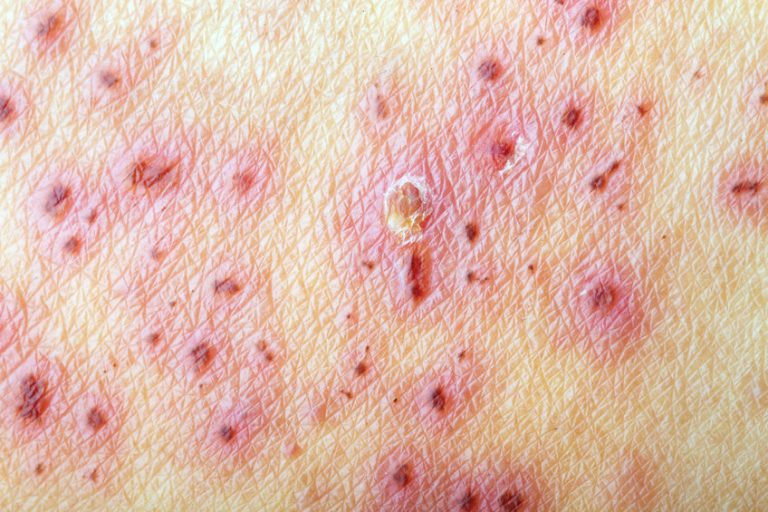
Shingles, or Herpes Zoster, is a painful rash that can affect anyone who has had chickenpox. When someone has had chickenpox, the varicella-zoster virus that triggers the chickenpox, remains in the body, usually in a dormant state. Shingles results when something triggers the dormant virus to wake-up, resulting in a blistering rash that covers the body. Most people who get shingles are aged 60 and above.
Shingles is not as contagious as chickenpox, but it can spread if someone comes in contact with fluid from a broken shingles blister. The shingles blisters eventually scab over and heal within two to four weeks, though there can be losting complications such as post-herpetic neuralgia (PHN) that affects the nerves, herpes zoster ophthalmicus that affects vision, or other skin infections.
Early detection of shingles can lessen the risks of complications. A board-certified dermatologist will often prescribe antiviral medications to lessen the pain and severity of the shingles outbreak in addition to recommending pain relievers and wet cloths to alleviate pain and itching. In extreme cases, a nerve block may be injected to help numb the area.
For adults aged 60 and older, the FDA recommends getting the shingles vaccine to prevent shingles outbreaks. Studies show a 50% decrease in risk of developing shingles in people who receive the shingles vaccine. Before getting the shingles vaccine, talk to your doctor to review current medications and medical history.
